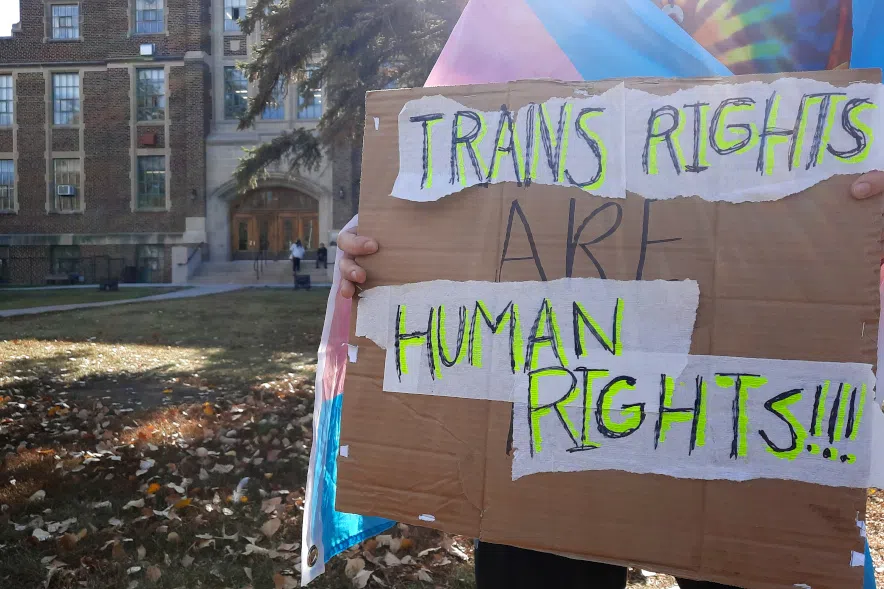The Government of Saskatchewan has taken the first steps to bring the case around its pronoun law to the highest court in the country.
The government has filed to the Supreme Court of Canada, seeking leave to appeal the decision that came down last month from the Saskatchewan Court of Appeal.
That decision found that a court could still examine the constitutionality of the government’s Parents’ Bill of Rights, also referred to as the pronoun law, despite the notwithstanding clause being invoked and any ruling from the court, therefore, not having any effect.
Read more:
- Sask. government got 18 complaints before implementing pronoun policy
- Sask. deficit could more than double, to $815.4 million
- Sask. government working with other provinces to strengthen trade
According to the Supreme Court’s website, the application for leave was filed on Sept. 12, though it appeared as of the 15th, the application was incomplete.
This case would not determine whether the law is constitutional, just whether a court has the jurisdiction to consider if it is.
The Government of Saskatchewan is of the opinion that use of the notwithstanding clause should end the conversation, while UR Pride, which challenged the law, said the public still has a right to know whether a law violates the Charter.
After the appeals court decision, the provincial government said in a statement that it will always protect parents’ right to be involved in their children’s education.
There is already a case that involves similar issues around the notwithstanding clause that’s expected to be heard by the Supreme Court, around the banning of religious symbols in the public service in Quebec – the Attorney General of Saskatchewan is an intervenor in that case.
If the Supreme Court grants the province leave to appeal the UR Pride case, the provincial government said on Monday that, given the commonality of issues between the two cases, it makes sense to ask the Supreme Court to combine the hearings.
According to the federal government’s factum filed in the Quebec case, it is asking the Supreme Court to put limits on when the notwithstanding clause can be used, saying that repeated use of the clause amounts to “indirectly amending the Constitution” and that courts should be able to rule on whether that might result in the “irreparable impairment” of Canadians’ rights.
Saskatchewan will strongly oppose the federal government’s attempt to limit the provinces’ ability to use the notwithstanding clause. This would mean a significant infringement on the autonomy of provinces and their elected legislatures.
The common argument that using the… https://t.co/a6NyrsUOGM
— Scott Moe (@PremierScottMoe) September 19, 2025
Premier Scott Moe reacted strongly to that, posting a statement to social media explaining that his government will strongly oppose the attempt to limit the provinces’ ability to use the clause.
“This would mean a significant infringement on the autonomy of provinces and their elected legislatures,” he wrote.
Moe said that the use of the clause is not a violation of the constitution, that instead, it’s a part of the constitution that was fought for by people like Saskatchewan’s Allan Blakeney.
“They understood that when there is a ‘collision of rights,’ the will of the duly elected legislature, not the courts, should prevail,” Moe said.
— With files from The Canadian Press











